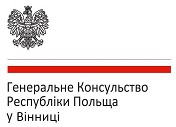Інтеграційно-дезінтеграційні процеси у Молдові
Ключові слова:
ethnopolitical disintegration, ethnopolitical integration, Transnistria, ethnopolitical conflictАнотація
Moldova had to deal with the disintegration-integration challenges from the very beginning of the formation of an independent state unlike Ukraine, which at the early stages of independence did not recognize the urgency of ethnonational problems at the state level, did not pay attention to ethnopolitical threats. Issues of ethnopolitical integration and disintegration are among the most important in the field of ethnopolitical security and ethnonational policy of this multiethnic state with very complicated ethnopolitical heritage. Ukraine did not take advantage of the ethnopolitical experience of Georgia and Moldova in the past, now all three post-Soviet states (Ukraine, Moldova and Georgia) are at the post-desintegration stage of development, which means the presence of self-proclaimed republics in their territorial composition, the settlement of armed ethnicpolitical conflicts and the policy of reintegration of the occupied territories.
In fact Moldova’s disintegration began before the formation of an independent state in the course of the collapse of the USSR. Its cause was the Transnistrian ethnopolitical conflict, which is considered one of the most controversial in the post-Soviet space, although the ethnic factor did not play a decisive role in it. In the late 1980s, the nationalist movement for the restoration of the state gained popularity in the Moldavian Soviet Socialist Republic. The Moldovan elite tried to build the state around the formation of the national-linguistic identity of its citizens. An important element in the restoration of Moldavian identity was the political course of ethnopolitical, ethnolinguistic integration of Moldova with ethnic, linguistic and historically close country - Romania. This triggered the separation of Transnistria.
The Transnistrian conflict has been under regulation for more than 25 years, but the prospects for restoring the territorial integrity of Moldova and the Transnistria reintegration are very small. During numerous talks with Russia, Ukraine and the OSCE, it was not possible to reach agreement on the status of Transnistria. The Moldovan leadership refused to conduct direct talks with leaders of the unrecognized republic, stressing that it is necessary to negotiate with Russia, which writes the script of the negotiation process and manipulates leaders of self-proclaimed state.
The regulation of the Transnistrian conflict was significantly hampered by the integration trends between Moldova and Romania, which did not lead to the ethnopolitical integration of both states, but became a hindrance to the reintegration of Transnistria into Moldova. Moldova balances between an association with Romania and an orientation towards Russia, depending on which political forces - pro-Russian or pro-Romanian gained power in the state. Ethnopolitical integration with Romania meant a loss of statehood and a lasting loss of hope in resolving the Transnistria conflict by returning the territory of an unrecognized republic to Moldova.
Moldova is an example of an unstable post-Soviet state, an ethno-political system that contains many ethnic and territorial contradictions, are dependent on foreign policy players, in which disintegration-integration processes balance each other, preventing the state from advancing in any direction of integration/disintegration. The political course on the ethnopolitical integration of Moldova with Romania hinders the resolution of the Transnistrian conflict, the reintegration of the territories of an unrecognized republic into Moldova and threatens further disintegration - the secession of Gagauzia. Therefore, this post-Soviet state, full of internal contradictions, has not succeeded in any direction - both integration with Romania and overcoming the consequences of disintegration. But, despite the fact that Moldova did not restore territorial integrity, it retained statehood and sovereignty.
##submission.downloads##
Опубліковано
Номер
Розділ
Ліцензія
Авторське право (c) 2018 Віра Явір

Ця робота ліцензується відповідно до Creative Commons Attribution-NonCommercial 4.0 International License.
Автор, який подає матеріали до друку, зберігає за собою всі авторські права та надає відповідному виданню право першої публікації, дозволяючи розповсюджувати даний матеріал із зазначенням авторства та джерела первинної публікації, а також погоджується на розміщення її електронної версії на сайті Національної бібліотеки ім. В.І. Вернадського, в міжнародних базах даних CEJSH, Index Copernicus, POL-index, Polska Bibliografia Naukowa.

